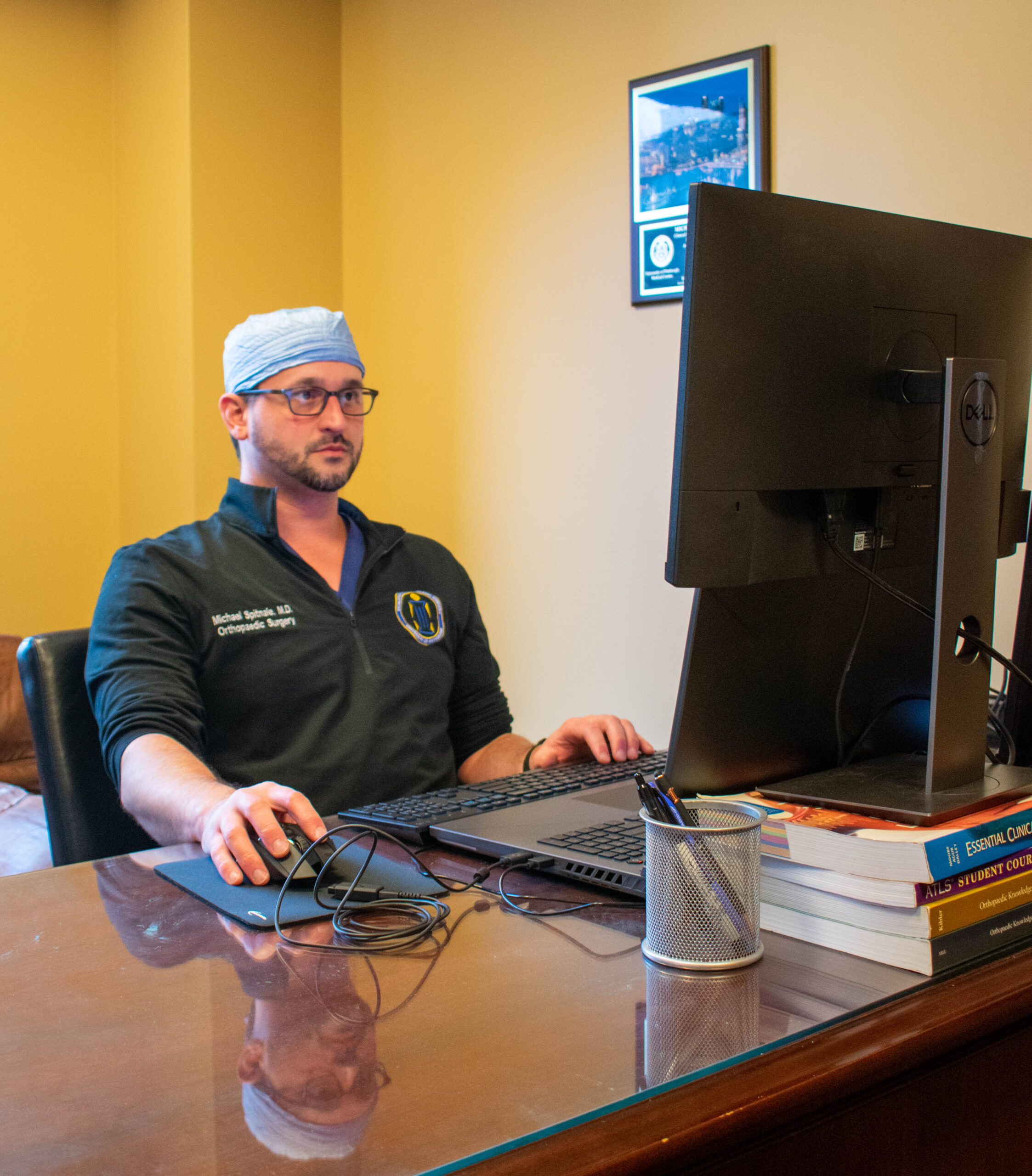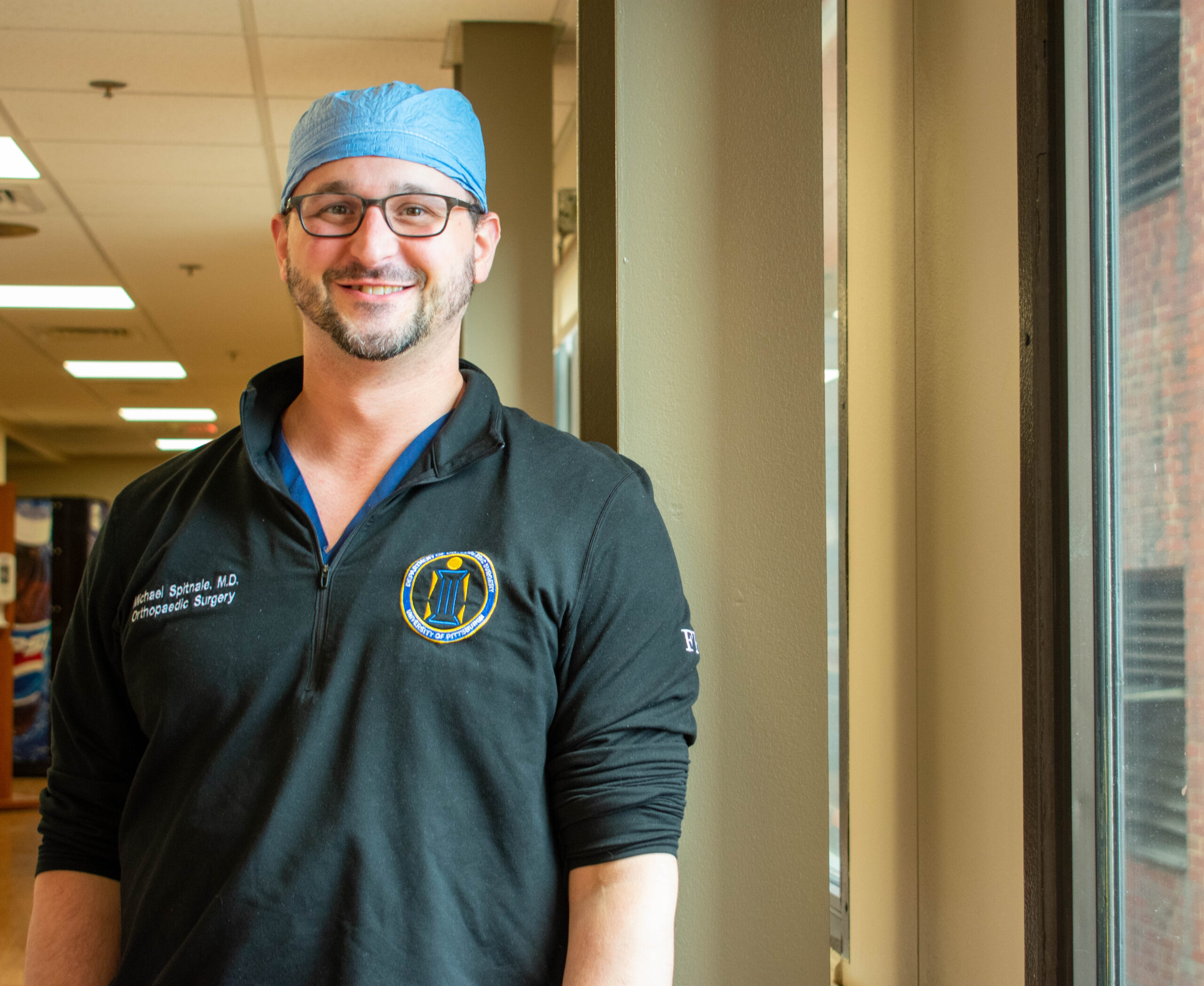Can you share a bit about your early life and what sparked your interest in research, medicine and orthopaedics/bioengineering? What were some pivotal moments or influences during your education that shaped your research interests?
During my senior year of high school, I began working in a factory that made roll-up doors attached to semi-trucks. I was unsure about attending college at the time because I was a first-generation college student with limited funds. Having seen the older workers at the factory express regret for not pursuing higher education, I was determined to break the cycle of living paycheck to paycheck and working in dead-end jobs. Despite the financial challenges, I applied, was accepted at the University of Kentucky, and worked various jobs to finance my education towards a chemical engineering degree.
My engineering experience and subsequent decision to pursue a career in medicine and orthopaedic surgery were influenced by my blue-collar background and my desire to make a positive impact on individuals’ lives and help people navigate our complex medical system. I knew that a career in orthopaedics would allow me to work with my hands and contribute to key principles I learned with an engineering degree: process improvement and innovation.
Spine surgery used to be more enigmatic for me, where clinical presentations and imaging didn’t always match up with how a textbook reads or how I’ve been taught previously, and this would lead to frustration. I would make assumptions on how to apply my knowledge, but this turned into judgments being made on the patient, myself, or both when I was wrong and couldn’t figure it out. A cycle of frustration ensued. Fortunately, I had two exceptional mentors during residency training at the University of South Carolina, Dr. Greg Grabowski and Dr. Shari Cui, that guided me through this learning process.
The cycle changed once I stopped being judgmental and making unverified assumptions and was humble enough to admit there was something wrong in my evaluation or communication with the patient, my abilities, or how I was applying my knowledge (or lack thereof). I started intentionally being more curious and began trying to figure out what the real problem was and its source. I slowly began picking up pearls of information based on each clinical encounter. I soon began to understand more about spine pathology and how to analyze the symptoms and misconceptions of the patients that presented it to me, and what I don’t understand has fueled my research interest for the purpose of figuring out what is best for the patient.

What were your initial career goals when you started your journey in research, and how have they evolved over time? Are there specific achievements or milestones you aspire to reach in your career?
When I started my research journey, my initial career goal was to become a surgeon, and research was more of a means to an end. However, as I progressed through my education and medical training, my career goals evolved from focusing on specific attainable accomplishments to focusing on specific philosophical principles. I have found that focusing on the success of patient outcomes and the people around me, at the expense of my own ego, to be much more personally rewarding. I believe that maintaining this philosophy will eventually lead to personal success, but what that looks like will always be secondary to what I can do for others and the positive relationships I can build with people I work with or care for.
The biggest achievement I aspire for is to maintain a consistent level of curiosity in hopes that it will lead to decisions that are best for patient care and a better understanding of spine pathology and the clinical care to treat it. Just like any good investment has diversity, I plan to continue refining my curiosity through a diverse career in clinical practice, education, and research. I am deeply committed to always approaching each stage of my career as a new beginning, a mindset that has guided my journey from a high-school-educated factory worker to a first-generation college student and now a spine surgeon.
Could you provide an overview of your current role at the BMRC and responsibilities in your research position?
One role I have is co-director of the Pittsburgh Orthopaedic Spine Research (POSR) Group, which focuses on clinical research and patient outcomes. Thanks to extensive efforts and continued contributions by Dr. Joon Lee, my spine surgery fellowship mentor, the group now comprises more than 140 previous, current, and (hopefully) future University of Pittsburgh Orthopaedic Spine Surgery trainees. The people in our large team are at all levels of education and training, from high school students, college students, medical students, residents, fellows, and alums. Some of our spine fellowship alums are also at other large academic institutions. This network helps create diverse research questions based on patient populations or clinical practices. This extensive network of people at various stages of training and different institutions has created an incredible environment of collaboration for a better understanding of spine pathology and the delivery of spine clinical care.
Another role I have that contributes to this research is as a committee member of the UPMC Musculoskeletal Registry Oversight Group, which helps provide expertise on spine patient-reported outcomes (PROs) and registries. The committee meets 3-4 times during the year and has representation from each Orthopaedic subspecialty, PM&R, and Rehab Institute, along with quality and regulatory teams. I am a member of the spine subgroup committee, and we are currently engaged in reviewing patient-reported outcome workflows for surgical patients.

Research can be demanding. How do you maintain a balance between your professional and personal life?
One of the most insightful presentations I have heard during training was a Visiting Grand Rounds talk during my last few months of residency at the University of South Carolina. Dr. Holly Pilson, an orthopaedic traumatologist at Wake Forest University, was asked this question and explained a term that more accurately describes what is needed for overall well-being: Work-Life Integration. I interpreted this as not trying to separate the work and the life parts but integrating the two for a more holistic approach. Work-Life Integration means finding ways throughout the day to include parts of my personal life in medicine rather than making “Life” and “Work” compete for my time and energy. Work-life integration has led to better job satisfaction and personal relationships that can better understand what I do daily.
Are there any recent developments or breakthroughs in your field that particularly fascinate you? Are there specific areas within your field that you are particularly interested in exploring further in the coming years?
The advent of machine learning in radiological image processing is fascinating, mainly because it could predict patient outcomes based on a surgical procedure they already underwent or suggest a particular surgery to have the best possible outcome based on preoperative imaging. Although exciting, implementing this technology and its implications for patient care remains to be seen. It also raises important ethical questions that must be considered when clinicians make personalized decisions for their patients.



